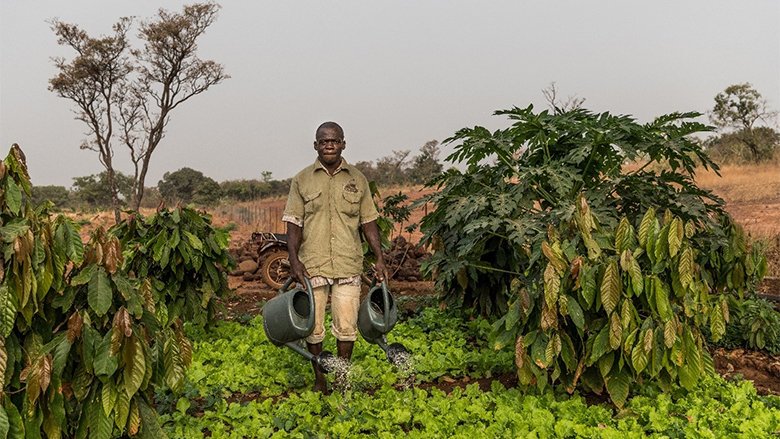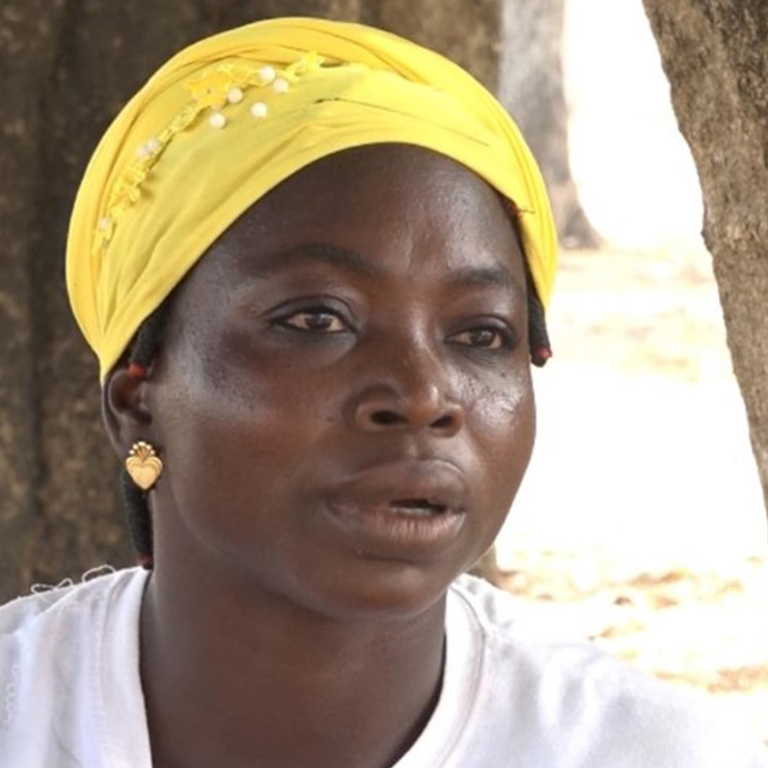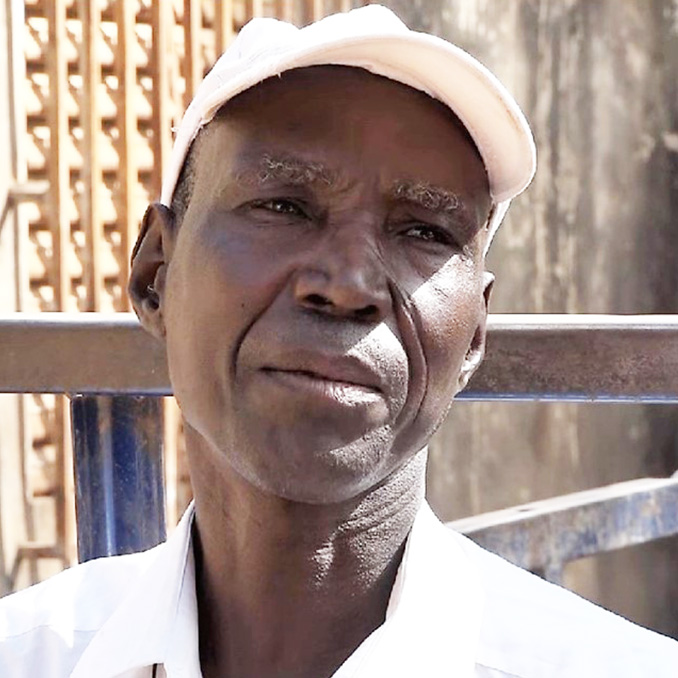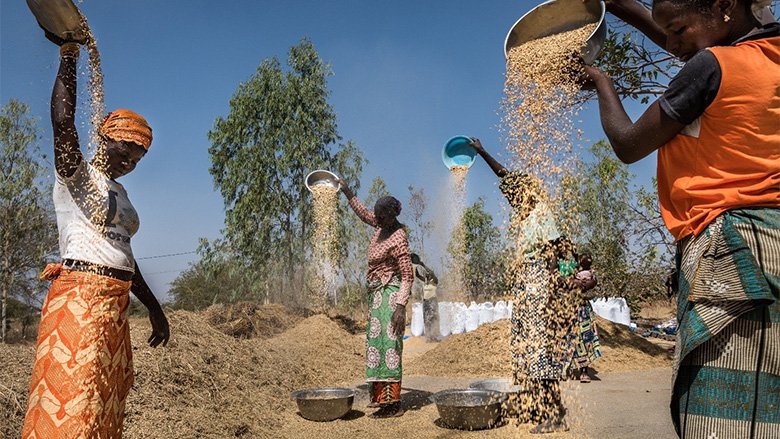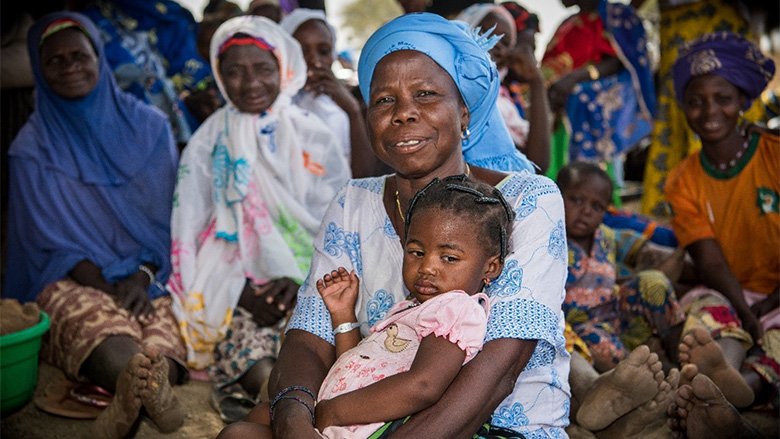Results
This reform program supported several key reforms by early 2022. These results support five objectives of Burkina Faso’s Country Partnership Framework (CPF).
- Under the first objective, the DPF improved agricultural productivity as a result of reforms pertaining to input distribution and animal vaccinations. Smallholder farmers gained better access to subsidized agricultural inputs. The share of seeds tracked through the electronic distribution system has increased from 23 percent in 2019 to 46 percent in 2021, and the share of fertilizer from 46 percent in 2019 to 75 percent in 2021.
- Herder productivity has increased, with stronger resilience for livestock. The number of sheep and goats vaccinated against highly contagious diseases has increased from 0.6 million in 2017 to about 5.8 million in 2021.
- Under the second objective, the sustainability of natural resources increased as a result of land reforms to counter deforestation. Sixteen forests were excluded from the mining cadaster to avoid their conversion to another land use, thereby reducing deforestation. Five classified forests were registered in the land cadaster to protect them against deforestation, thus avoiding greenhouse gas emissions of the equivalent of almost 80,000 tons of carbon dioxide (CO2).
- Under the third objective, the DPF expanded social protection to the most vulnerable. This was achieved through reforms to institutionalize a national adaptive, pro-poor safety net system. A social registry of households and people living in poverty was established in 2021, including data-sharing protocols for the effective use in social programs. In the future, the registry will help to make social assistance more effective by identifying and targeting the groups most in need of support.
- Under the fourth objective, the DPF strengthened domestic resource mobilization and public expenditure management as a result of tax administration and wage bill reforms. The implementation of tax administration reforms, including e-filing and e-payment of taxes, led to an increase in the number of registered taxpayers from 95,500 in 2017 to 142,000 in 2021.
- Public wage bill reform, including the rationalization of core jobs, mobility of existing staff across occupational and administrative units, and transparent recruitment requirements, led to a deceleration in the annual growth rate of the public wage bill from 11.4 percent in 2017 to 5.8 percent in 2021.
- Under the fifth objective, the DPF enhanced public sector accountability as a result of governance and debt management reforms. The establishment of a dedicated governance framework for crisis funds led to a reduction in procurement contract lead time for medical supplies from 169 days in 2019 to 28 days in 2021. In addition, it reduced corruption through enhanced audit requirements and processes.
- A new regulatory framework put in place with IDA technical assistance enabled the publication of high-quality, quarterly public debt bulletins. As a result, Burkina Faso has become a leader among IDA countries in terms of debt transparency. Indeed, it is the only country to reach full availability, completeness, and timeliness in all nine categories on the World Bank’s Debt Transparency Heat Map.
World Bank Group Contribution
Through IDA, the World Bank Group provided a total of US$350 million between 2019 and 2021 to finance policy and structural reforms in Burkina Faso. The World Bank also approved US$200 million in IDA financing in December 2021 to provide additional support for the implementation of reforms to strengthen fiscal management, improve natural resource management and livestock productivity, and enhance service delivery and social spending efficiency. Regarding Public-Private Partnerships (PPPs), which is part of the DPF reform program, the Government has worked closely with the International Finance Corporation (IFC), which provided technical assistance to support a new PPP law, which was subsequently passed in 2021.
Partners
Together with the United Nations, the African Development Bank (AfDB), and the European Union (EU), the World Bank has completed a Prevention and Peace Building Assessment. This Assessment identified opportunities to promote peace and maintain social cohesion in Burkina Faso. The design of the DPF operations was also informed by this Assessment, as well as through regular consultations with other development partners, including the International Monetary Fund (IMF), the French Development Agency (AFD), and the Danish International Development Agency. In addition, a grant of US$2 million provided by Swedish cooperation laid the groundwork for public-sector human resource reform under the recently approved DPF.
Looking Ahead
In an increasingly challenging context, the future DPF program will be critical to the support of a series of transformational reforms related to food security, social safety nets, environmental protection, governance, and fiscal management.
